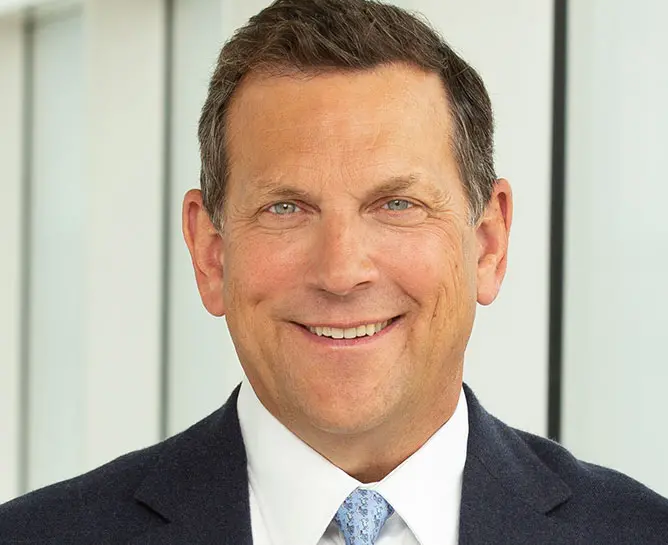Don’t Ask For Trust, Become Trustworthy
Northwestern Mutual CEO says integrity is the greatest investment of all.

Trust in business in the Covid-19 era is on the mend, according to PWC’s Trust in US Business Survey . Eighty percent of employees trust their company the same, or more, now than before the pandemic. That number is nearly mirrored by consumers looking to financial services companies, with 77% trusting financial services organizations the same or more now than before the pandemic.
Clearly, this is a start, but there is still room for improvement, and leaders must weigh what will help their organization elevate trust. In my view, it’s critical to approach this in a long-term way. The only way for an organization to be truly trustworthy is through consistent actions over time that demonstrate a commitment to responsible behavior.
Trustworthiness as a business imperative
Demonstrating trustworthiness is essential to building lasting relationships. And that’s an important distinction. Trust is merely a near-term perception, while trustworthiness can only be earned over time by consistently living up to your commitments.
The business benefits to building a trustworthy brand should convince any leader of its importance. According to PWC, 22% of employees have left a company because of trust issues, and 19% have chosen to work at a company because they trust it. Customers also tend to reward trustworthiness with loyalty, high levels of satisfaction and consistent growth over the long-term. Trustworthiness is key to ensuring all stakeholders know their value.
At Northwestern Mutual, we have seen that deep trust drives value for our company and the policyowners who own our mutual company. During the pandemic, our persistency rate -- the number of policyowners who stayed with us from one year to the next -- remains the highest in the industry. While humbling and rewarding, it’s ultimately a reflection that we have a long-standing track record of doing the right thing -- backed by a full commitment at all levels of the company to act in a way that consistently builds trust year after year.
Building blocks for leaders
There are three aspects of trustworthiness that are critical. First, you need to start with the intention to do the right thing. Second, you need to ensure you have the ability to do the right thing. Third, and most importantly, you have to fully recognize that you must do the right thing -- as an obligation -- without any regard for your self-interest.
When looking at those three components, many of us find that the first two are relatively easy -- intending to do the right thing and having the ability to follow through. But the third one is more challenging because it truly requires each of us to look beyond ourselves as we make decisions and act with an obligation to do the right thing no matter what. In my view, this is where trust moves from a nice feeling into something that is genuine, meaningful and enduring. When you see that someone will do the right thing for you -- even if it’s not in their own self-interest -- it creates an exceptionally deep level of trust, loyalty and goodwill.
This approach underpins how we make decisions and manage Northwestern Mutual. Whether we’re designing products, setting pricing, making decisions about our operations, shaping how we navigate the economic conditions of the day, or any number of other critical items, we always start with what is right for our clients. As decision makers, we have to think about how our decisions affect others rather than starting with ourselves. When consistently applied, this client-centric approach over time creates a foundation for long-lasting trust that is authentic and grounded in facts rather than platitudes.
The modern tenets of trustworthiness
In today’s hyper-aware world, it’s more important than ever for companies to dedicate themselves to principles that will nurture a trustworthy culture, and embracing the following tenets is a good place to start:
Determine the value you bring to the public and commit to it. Every company has a reason for existing beyond making a profit. In the case of Northwestern Mutual, our mission is to help people become financially secure -- so they can live more and worry less. In doing that, we are working to solve the financial vulnerability that too many people experience. Committing to that mission and being transparent about how your organization works toward accomplishing it goes a long way toward building trustworthiness.
Competency and conduct matters. It doesn’t matter what you say; it matters what you do. Your clients, your employees and your future customers are always watching -- and they’re making decisions about you and your enterprise based on what they see. You have to execute on your core business functions in a consistent and high-quality way -- while being transparent and demonstrating exceptionally trustworthy conduct. In other words, good intentions aren’t enough.
Consistency is crucial. Acting in a trustworthy manner should be something your organization earnestly commits to. You need time for your business to build a track record as a trustworthy actor. I’ll share an example of this based on our own business. Next year will be our 150th consecutive year paying dividends to our policyowners -- while they’re not guaranteed, we manage our business so we can share our success and deliver value, options and flexibility to help our policyowners achieve greater financial security. When your track record is clear -- literally over the course of generations -- it helps people see that you live up to your word and follow through on commitments in a consistent way.
Establishing a company as trustworthy takes commitment, resolve and patience. It’s not an easy road for business leaders to walk down, but it’s the right one. And the reward of strong customer loyalty, high levels of satisfaction and consistent growth over the long term are more than worth it.
(John Schlifske is the chairman, president and CEO at Northwestern Mutual.)
© Copyright IBTimes 2025. All rights reserved.





















